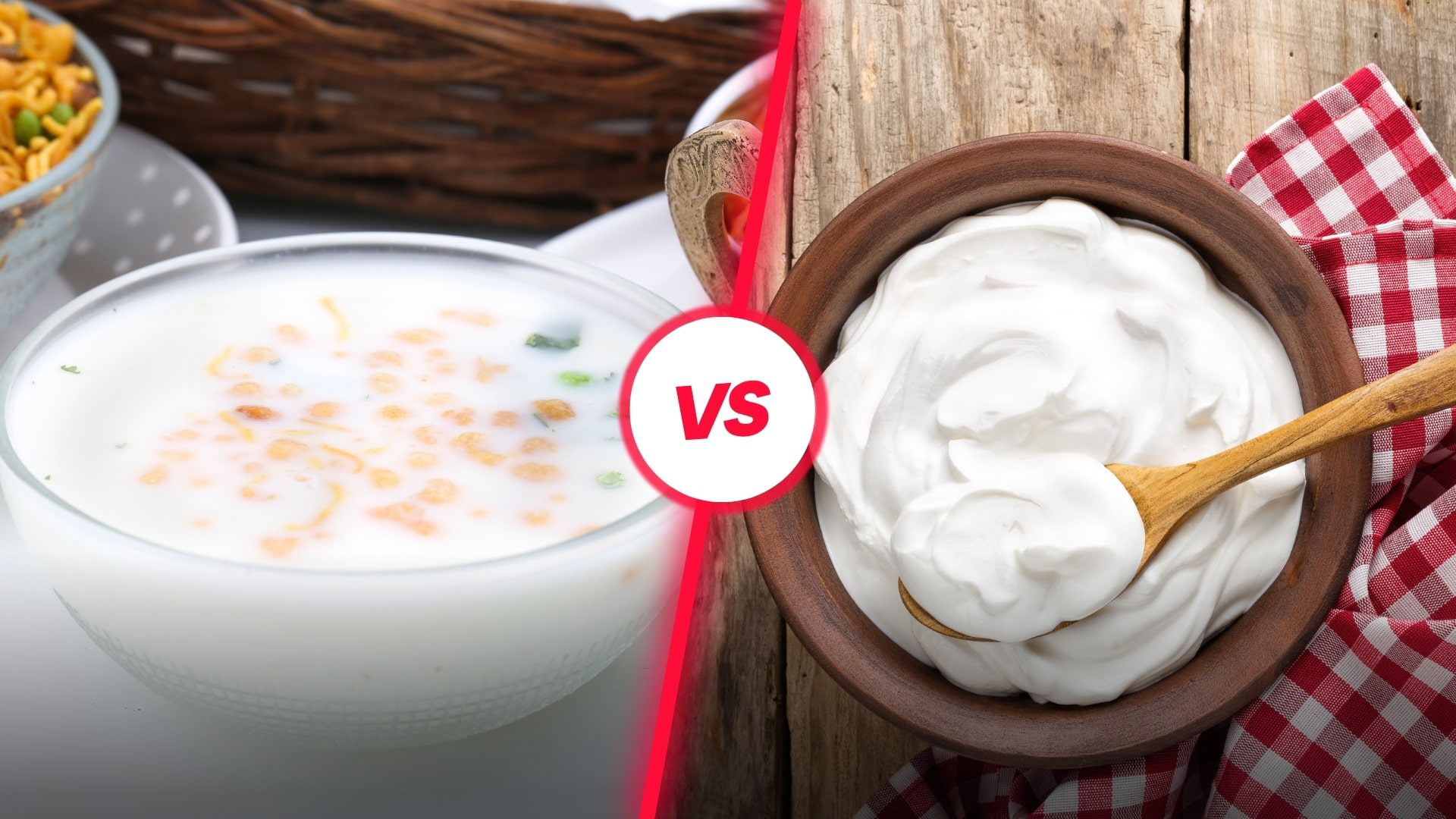
When it comes to healthy eating and gut-friendly foods, curd and yogurt are two popular dairy products that often cause confusion. While many people use them interchangeably, there are some key differences in their preparation, taste, nutrition, and health benefits. Let’s explore in detail which one is better for you — curd or yogurt.
What Is Curd?
Curd (also known as dahi in India) is a natural dairy product made by fermenting milk using a small portion of previously made curd. This process allows good bacteria (lactic acid bacteria) to multiply, thickening the milk and giving it a mild tangy flavor.
How It’s Made:
-
Warm milk is mixed with a spoon of curd.
-
It’s kept at room temperature for 6–8 hours.
-
Natural bacteria ferment the milk into curd.
Key Traits:
-
Slightly sour or tangy flavor
-
Texture can vary — sometimes smooth, sometimes grainy
-
Fermentation depends on room temperature and starter quality
What Is Yogurt?
Yogurt is a scientifically cultured dairy product made by fermenting milk with specific strains of bacteria — mainly Lactobacillus bulgaricus and Streptococcus thermophilus.
This controlled fermentation ensures consistent texture, taste, and probiotic content.
How It’s Made:
-
Pasteurized milk is inoculated with selected bacterial cultures.
-
The mixture is incubated at a specific temperature.
-
The result is thick, creamy, and mildly tangy yogurt.
Key Traits:
-
Smooth, uniform texture
-
Controlled acidity and flavor
-
Consistent probiotic quality
Nutritional Comparison: Curd vs. Yogurt
| Nutrients (per 100g) | Curd (Dahi) | Yogurt |
|---|---|---|
| Calories | 60–80 kcal | 60–90 kcal |
| Protein | 3–4 g | 4–5 g |
| Fat | 3–4 g | 3–4 g |
| Carbohydrates | 4–5 g | 4–6 g |
| Calcium | High | High |
| Probiotics | Natural but variable | Controlled, consistent quantity |
Verdict: Yogurt usually provides a more consistent probiotic profile and slightly higher protein content.
Health Benefits of Curd
-
Aids digestion – The natural bacteria in curd support a healthy gut and improve digestion.
-
Boosts immunity – Regular consumption strengthens immunity against infections.
-
Cooling effect – Curd helps reduce body heat, especially in hot weather.
-
Improves skin and hair – Rich in lactic acid, curd promotes clear skin and shiny hair.
-
Supports weight loss – Low in fat and easy to digest when consumed in moderation.
Health Benefits of Yogurt
-
Rich in probiotics – Contains specific beneficial bacteria that maintain gut health.
-
Good for lactose intolerance – Easier to digest than milk because bacteria break down lactose.
-
Supports heart health – Low-fat versions help lower cholesterol.
-
Boosts bone strength – Packed with calcium, phosphorus, and vitamin D.
-
Maintains weight – Helps reduce hunger and supports metabolism.
Curd vs. Yogurt: Which Is Better?
| Aspect | Curd (Dahi) | Yogurt |
|---|---|---|
| Fermentation | Natural, using old curd | Controlled, with specific cultures |
| Probiotics | Natural, may vary | Standardized, scientifically proven |
| Texture | Can be grainy | Smooth and creamy |
| Taste | Tangy, traditional | Mild, uniform |
| Health Impact | Good for digestion, cooling | Excellent for gut health and immunity |
| Shelf Life | Short (1–2 days) | Longer (up to 2 weeks) |
Both curd and yogurt are healthy — but yogurt offers more consistent probiotics, making it slightly better for gut health and digestion. However, curd is a great natural and traditional alternative, especially if made fresh at home.
How to Include Them in Your Diet
-
Add a bowl of curd or yogurt to your lunch daily.
-
Use it as a base for smoothies, dips, or salad dressings.
-
Eat plain or mix with fruits, honey, or seeds for a healthy snack.
-
Avoid mixing with very oily or spicy foods to prevent indigestion.
Possible Precautions
-
Avoid sour curd if you have cold or sinus issues.
-
Check for added sugars in flavored yogurts.
-
People with milk allergies should avoid both unless advised by a doctor.
Both curd and yogurt are excellent sources of nutrition, probiotics, and calcium.
If you prefer traditional, homemade, and natural foods — go for curd.
If you want scientifically tested, probiotic-rich, and consistent nutrition — choose yogurt.
Either way, adding one bowl daily to your diet can improve your gut, skin, and overall health.


